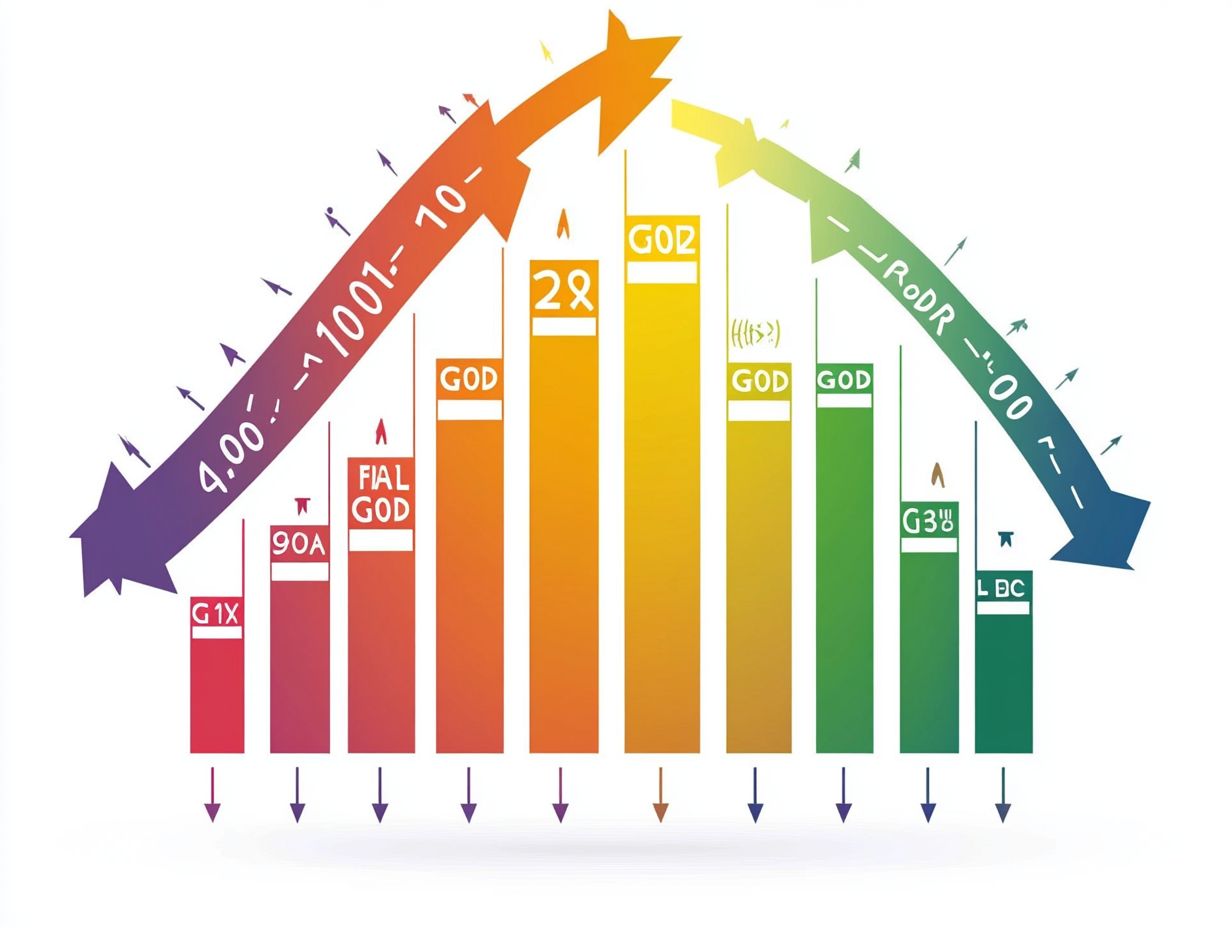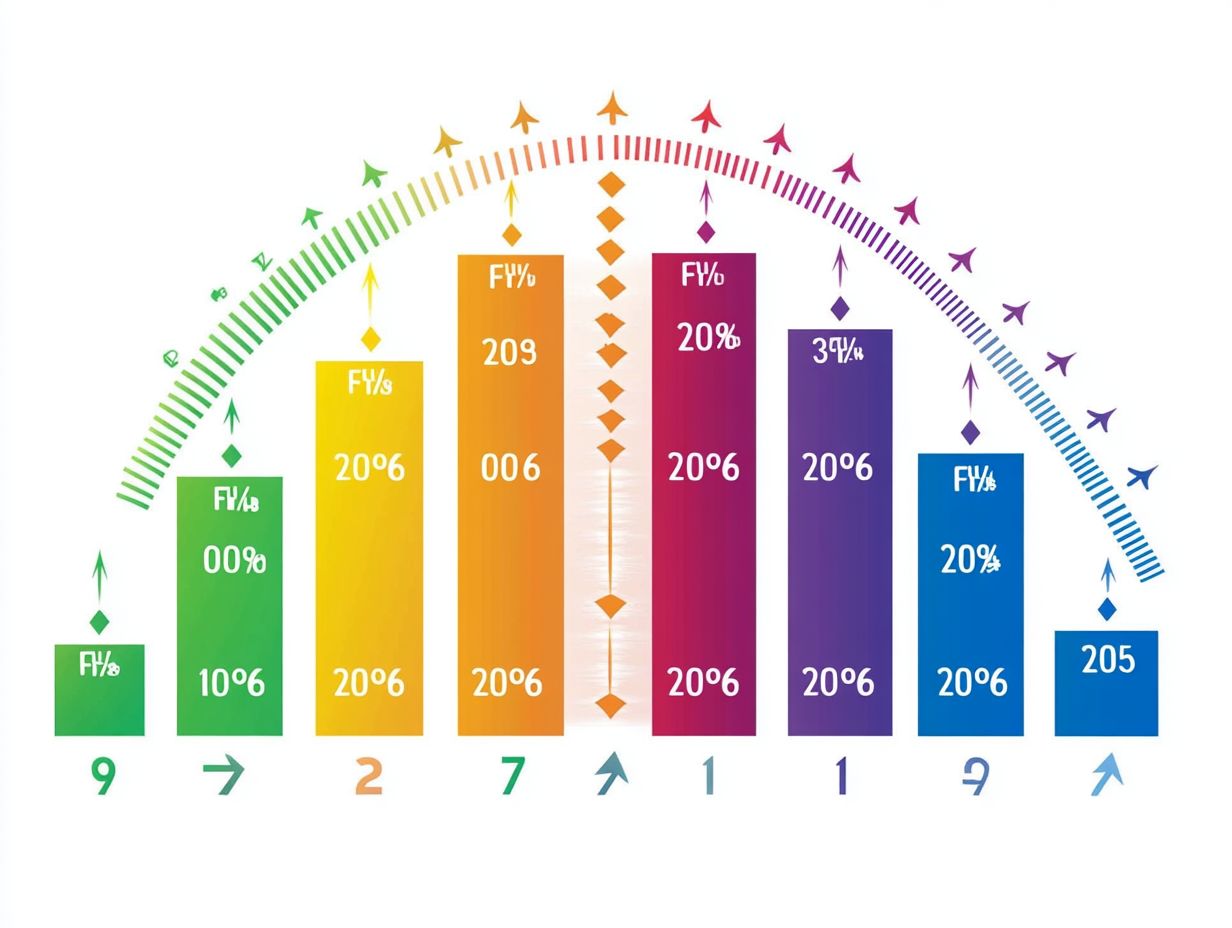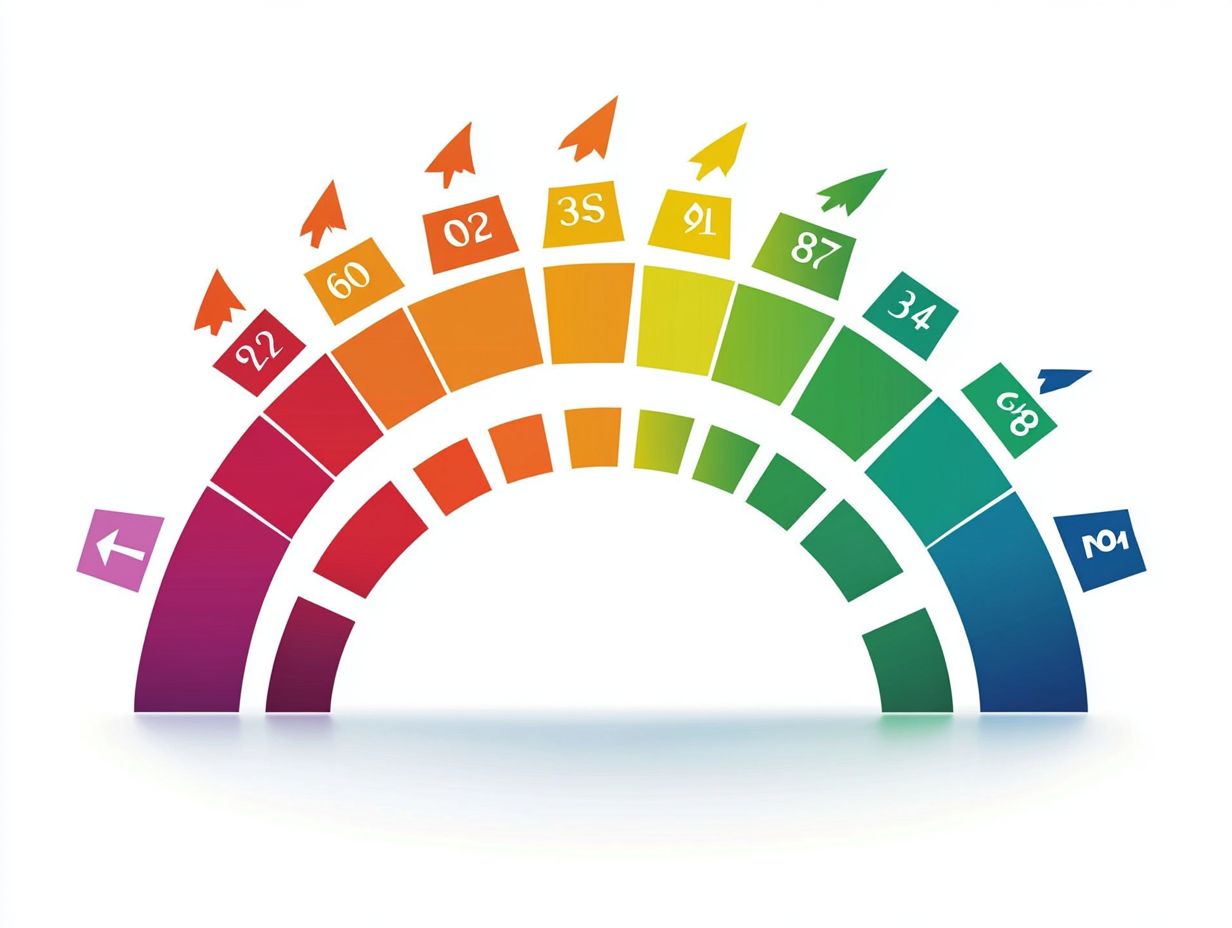What is a Good Credit Score Range?
Understanding credit scores is crucial for anyone navigating the intricacies of the financial landscape. This article demystifies what a credit score is and why it holds significance. It delves into the key factors that influence it, such as payment history and credit inquiries.
It also clarifies what constitutes a good credit score and how these ranges are determined. You’ll uncover valuable tips for boosting your score and common pitfalls to sidestep.
Equip yourself with the knowledge necessary to elevate your financial standing!
Contents
- Key Takeaways:
- Understanding Credit Scores
- Factors that Affect Credit Scores
- Good Credit Score Range
- Improving Your Credit Score
- Tips for Raising Your Score
- Common Mistakes to Avoid
- Frequently Asked Questions
- What is a Good Credit Score Range?
- Why is Having a Good Credit Score Important?
- What Factors Determine a Good Credit Score?
- Can I Still Get a Loan with a Lower Credit Score?
- How Can I Improve My Credit Score?
- What are Some Benefits of Having a Good Credit Score?
Key Takeaways:

- A good credit score range is typically between 670-850.
- Factors such as payment history, amount of debt, and length of credit history affect your credit score.
- To improve your credit score, make timely payments, keep credit card balances low, and avoid opening multiple new lines of credit.
Understanding Credit Scores
Understanding credit scores is vital for anyone aiming to make informed financial decisions. These scores significantly influence your ability to borrow money and secure loans and credit products.
The primary credit scoring models, particularly those from the Fair Isaac Corporation (FICO) and VantageScore, assess a variety of factors, including your credit history, payment history, and credit utilization. These elements play a crucial role in determining the interest rates lenders apply when evaluating potential borrowers like you.
What is a Credit Score?
A credit score is your personal numerical badge of creditworthiness, meticulously calculated by credit bureaus like Experian, Equifax, and TransUnion using various scoring models such as FICO Scores and VantageScore.
This score usually falls within the range of 300 to 850, with higher numbers reflecting a lower risk for lenders. Several factors play into this calculation, including your payment history, amounts owed, length of credit history, types of credit used, and new credit inquiries. Each of these elements contributes differently to your overall score.
Credit bureaus play a vital role in this process, gathering and analyzing your credit data to provide lenders with a standardized way to evaluate risk. It’s essential for you to understand the different scoring models, as they can produce varying scores that significantly influence your loan approvals, terms, and interest rates for mortgages, car loans, and credit cards.
Why is it Important?
Credit scores play a crucial role in your financial journey. They significantly impact your creditworthiness.
When you maintain a higher credit score, you unlock a treasure trove of advantageous loan options. This makes it much more straightforward to secure mortgages or auto loans at lower interest rates. This not only lightens your monthly payments but also bolsters your overall financial stability.
A lower credit score can lead to higher interest rates or even disqualification from loan applications. These outcomes create substantial obstacles in achieving significant financial ambitions like home ownership or purchasing a vehicle.
Understanding and improving your creditworthiness is essential if you aim to navigate the financial landscape with confidence and success.
Factors that Affect Credit Scores
Numerous factors influence credit scores, with each element playing a crucial role in determining your overall credit risk.
Your payment history, credit utilization, the length of your credit history, the diversity of your credit mix, and the number of credit inquiries all contribute to the intricate tapestry that forms your credit profile.
Understanding these components is key to mastering your credit health.
Payment History

Your payment history shows your ability to repay debts punctually and significantly shapes your overall credit health.
A strong payment history shows lenders you can repay debts on time. This increases the likelihood of approval for your future credit applications.
Conversely, late payments can harm your credit scores, sometimes causing a dramatic drop with just one missed due date.
Various types of accounts are important for this aspect, including credit cards, auto loans, mortgages, and utility bills. Keeping your payments on time is key to building a great credit profile!
By maintaining consistent payment behavior across these accounts, you not only fortify your credit report but also bolster your financial credibility, paving the way for more favorable lending terms down the line.
Amount of Debt
The amount of debt you carry, often measured through your credit utilization (how much of your credit limit you re using), is a crucial factor affecting your credit score.
To calculate your credit utilization ratio, divide your total outstanding credit card balances by your total credit limits. Ideally, this ratio should be kept below 30%, as it plays a significant role in determining your creditworthiness.
A high ratio can raise red flags for lenders, potentially leading to lower credit scores.
To manage your debt effectively, try these tips:
- Pay down what you owe.
- Keep old credit accounts open to maintain larger credit limits.
- Use budgeting apps to track spending.
By being mindful of your spending habits, you can cultivate a healthier credit profile while reaping the benefits of a strong financial standing.
Length of Credit History
The length of your credit history plays a pivotal role in shaping your credit score, offering lenders valuable insights into how you manage your financial obligations over time.
A longer credit history often reflects a responsible approach to financial commitments, which can significantly boost your creditworthiness.
Lenders tend to favor individuals who have maintained older credit accounts for an extended period, seeing this as a sign of stability and reliability.
By keeping these accounts active, you not only cultivate a well-rounded credit profile but also enhance your credit score.
Older accounts contribute positively to the average age of your credit accounts, a vital element in the overall calculations of your credit score.
New Credit Inquiries
New credit inquiries emerge when you apply for new credit, and they can cast a shadow on your credit score, signaling to lenders that you might be perceived as a higher credit risk.
These inquiries fall into two distinct categories: hard inquiries and soft inquiries. Hard inquiries occur when you give a lender the green light to examine your credit as part of their decision-making process. On the other hand, soft inquiries happen when your credit is assessed for non-lending purposes, such as a background check or a pre-approval offer.
It’s crucial to understand that hard inquiries can cause a minor dip in your credit score, but don’t worry this decrease is usually only temporary.
To minimize the impact of these inquiries, consider the following strategies:
- Spread out your applications over time.
- Check your credit report regularly!
- Apply for credit only when it’s absolutely necessary.
By taking these steps, you can safeguard your credit score while navigating the world of credit applications.
Credit Mix
A diverse Credit Mix can significantly enhance your credit score, showing you can manage different types of credit well. This versatility highlights your financial responsibility and reduces the perceived risk for lenders.
Maintaining a blend of revolving accounts, like credit cards, and installment loans, such as auto or mortgage loans, provides creditors with insight into your varied repayment strategies.
A well-rounded credit profile shows you can handle different financial obligations. A balanced Credit Mix can improve your overall credit utilization ratio the percentage of your available credit that you are using and payment history, both essential elements of credit health.
By integrating various credit types into your financial portfolio, you position yourself for more favorable lending terms in the future.
Good Credit Score Range

Understanding what defines a good credit score range is crucial for you as a consumer. While it may vary slightly between different scoring models, such as FICO Scores and VantageScore, it typically falls within a spectrum that reflects responsible credit management.
What is Considered a Good Credit Score?
A good credit score is generally any score above 700, whether you’re looking at FICO Scores or VantageScore. This benchmark signals to lenders that you have a reliable credit history.
Achieving this level of creditworthiness can have significant implications. It affects your chances of loan approval and the terms attached to it. With a high score, you often qualify for lower interest rates and may be eligible for larger loan amounts, making financial ventures much more manageable.
Remember, understanding scoring models is vital! FICO emphasizes payment history and credit utilization, while VantageScore focuses more on recent credit behaviors. By grasping these subtleties, you can take control of your finances and work toward optimizing your credit standing.
How is a Credit Score Range Determined?
A credit score range is shaped by various factors evaluated through credit scoring models like FICO Scores and VantageScore, reflecting your credit behavior and risk level.
These models consider essential elements such as your payment history, credit utilization, length of credit history, types of credit accounts, and recent inquiries.
Your payment history holds significant weight, showcasing your reliability in settling debts on time. Credit utilization is equally important; it measures how much of your available credit you are using. A lower utilization rate typically signals sound financial management.
The length of your credit history provides insights into how long you ve been borrowing, with longer histories generally favoring higher scores. Different types of credit accounts, including revolving and installment loans, contribute to the overall assessment.
Lastly, recent credit inquiries can impact your score. Multiple applications within a short period may raise a red flag about your financial stability.
Improving Your Credit Score
Enhancing your credit score is a nuanced journey that requires effective credit management strategies and actionable insights. Implementing these approaches can help you progress toward your financial aspirations and cultivate a strong credit score over time.
Tips for Raising Your Score
To elevate your credit score, concentrate on maintaining a low credit utilization ratio and ensuring timely payments. This can significantly enhance your payment history.
Make it a priority to check your credit reports regularly to catch any mistakes fast! By remaining vigilant, you can promptly dispute errors, which can have a considerable impact on your creditworthiness.
Consider utilizing automated payment systems to ensure your bills are paid on time, fostering responsible payment behavior. Reducing existing debts should also be a top priority; employing methods like the snowball or avalanche strategy can effectively help you manage outstanding balances.
Always strive to keep your credit accounts active. This not only enhances the overall age of your credit but also reinforces your commitment to responsible credit behavior.
Common Mistakes to Avoid

Avoiding common mistakes in managing credit is essential for maintaining an excellent credit score. Late payments and neglecting to monitor requests made by lenders to check your credit history can have serious repercussions.
Consider this: just one late payment can trigger significant penalties. It can pull your credit rating down into the depths of despair.
Continuously maxing out your available credit is a red flag for lenders. It signals financial distress and further jeopardizes your score.
Applying for multiple credit sources in a short time often signals disorganized financial planning. This results in several hard inquiries, which might raise eyebrows among creditors.
Master these pitfalls to boost your financial standing and open doors to better lending opportunities down the road.
Frequently Asked Questions
What is a Good Credit Score Range?
A good credit score range is typically considered to be between 670 and 739. Knowing your credit score range can help you take immediate steps to improve your financial health.
Why is Having a Good Credit Score Important?
Having a good credit score is important because it can affect your ability to obtain loans, credit cards, and other forms of credit. It can also impact the interest rates and terms that lenders offer you.
What Factors Determine a Good Credit Score?
Several factors determine a good credit score, including payment history, credit utilization, length of credit history, types of credit used, and new credit inquiries.
Can I Still Get a Loan with a Lower Credit Score?
While having a good credit score is ideal, you may still be able to get a loan with a lower credit score. However, you may face higher interest rates and less favorable terms.
How Can I Improve My Credit Score?
To improve your credit score, you can make timely payments, pay off debt, keep credit card balances low, and avoid opening too many new accounts. It’s also important to regularly check your credit report for errors and dispute any inaccuracies.
What are Some Benefits of Having a Good Credit Score?
Having a good credit score can lead to lower interest rates, better loan and credit card options, and even potential approval for rental applications and lower insurance premiums. It can also provide peace of mind and financial stability.






